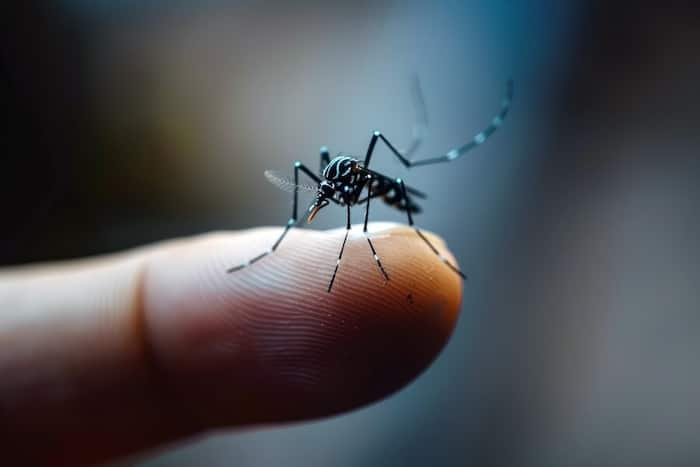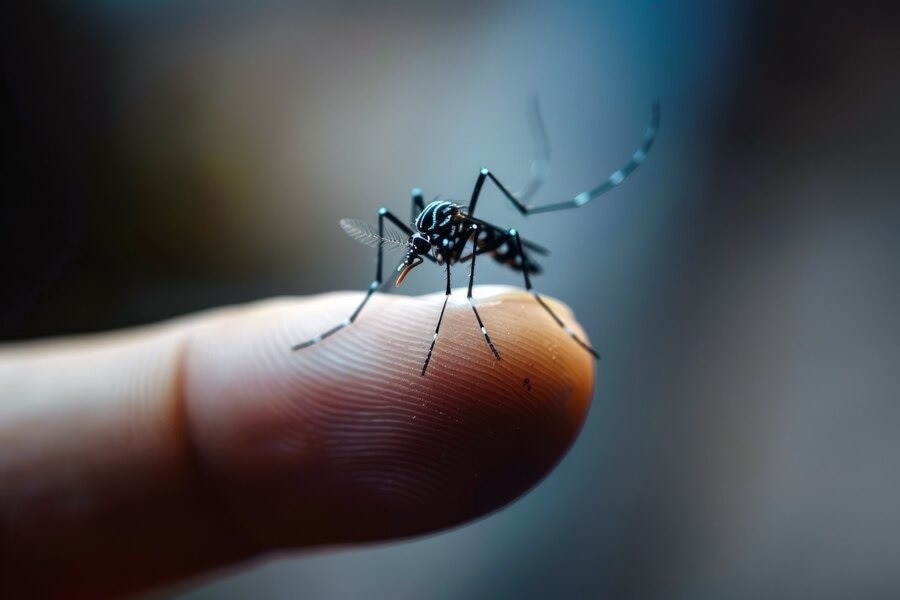Dengue fever is a viral disease impacting public health in India, especially during monsoon. Here are 5 strategies to prevent the risk and stay safe from this severe infection.

As the monsoon season approaches, the risk of dengue fever significantly increases, especially in the tropical and subtropical regions. The dengue virus, primarily transmitted by the Aedes mosquito, can cause symptoms ranging from mild flu-like signs to severe life-threatening complications. With no specific treatment or widely available vaccine yet, prevention emerges as our most potent weapon against the disease. Dr Gowri Kulkarni, Head Of Medical Operations, MediBuddy spoke to India.con and shared five essential tips to help you prevent dengue fever and protect your health during this vulnerable time.
Tips to Prevent The Risk of Dengue
- Eliminate Mosquito Breeding Sites – One of the most effective ways to prevent dengue is to reduce the mosquito population by eliminating their breeding sites. Aedes mosquitoes lay their eggs in stagnant water, so it’s crucial to keep your surroundings clean and dry. Regularly inspect your home and surroundings, and remove any containers holding standing water, such as buckets, plant pots, old tires, or anything else that can collect rainwater. Keeping gutters clear and covering water storage tanks is also vital.
- Prevent Mosquito Bite – Applying mosquito repellents is an effective personal protection measure to prevent mosquito bites, especially outdoors or in areas with high mosquito activity. Use mosquito repellents and One can also use natural options like oil of lemon eucalyptus or citronella-based products. While more long-lasting than chemical repellents, they can still provide some protection. Additionally, when possible, wear long-sleeved shirts, long pants, socks, and closed-toe shoes to minimise skin exposure to mosquitoes. Light-colored, loose-fitting clothing is preferable as it is more protective and breathable. Use mosquito nets when resting or sleeping, especially during the day when Aedes mosquitoes are most active.
- Identify the Symptoms Early – Seeking prompt medical attention for symptoms of dengue fever is crucial for timely medical intervention and preventing potential complications. A sudden, high fever is often one of the first signs, with temperatures reaching up to 104°F (40°C) or higher. Acute headaches are also one of the earliest symptoms of the disease. A characteristic symptom is severe pain or pressure felt behind the eyes, which can worsen with eye movement, and extreme muscle and joint pains. If anyone experiences any combination of these symptoms, especially after being in a dengue-prone area, early medical intervention would be imperative. Early diagnosis and proper medical care are crucial, as dengue can potentially progress to a more severe and life-threatening form known as dengue hemorrhagic fever or dengue shock syndrome.
- Practise Good Hygiene – Maintaining good personal and environmental hygiene practices enables the prevention of further transmission of the dengue virus to others through mosquito vectors. Properly dispose of any containers or materials that could collect standing water and serve as mosquito breeding sites. By diligently practising good personal and environmental hygiene, you can help break the transmission cycle of the dengue virus and protect your community from the further spread of this debilitating disease.
- Maintain a Healthy Immune System – A strong immune system can help your body fight off infections, including dengue. Adopt a diet rich in fruits, vegetables, whole grains, lean proteins, and healthy fats to provide essential vitamins and minerals that support immune function. Engaging in regular physical activity can also boost the immune system.
It’s important to remember that even if one has already had dengue fever, they can still contract the virus again from a different serotype, so maintaining preventive measures is crucial. Good hygiene practices are especially vital during the infectious period to avoid secondary transmission through mosquito vectors.

